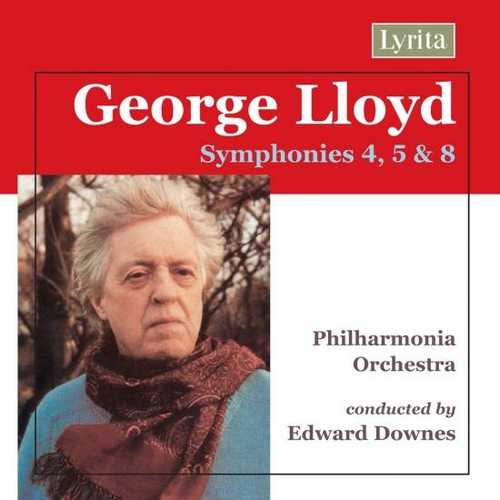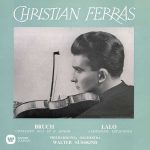
Composer: George Lloyd
Orchestra: Philharmonia Orchestra
Conductor: Sir Edward Downes
Format: FLAC (tracks)
Label: Lyrita
Release: 2007
Size: 2.9 GB
Recovery: +3%
Scan: yes
Symphony No. 4 in B Major
01. I. Allegro moderato
02. II. Lento tranquillo
03. III. Allegro scherzando
04. IV. Lento – Allegro non troppo
Symphony No. 5 in B-Flat Major
05. I. Pastorale. Allegretto con tenerezza
06. II. Corale. Grave
07. III. Rondo. Delicatamente scherzando
08. IV. Lamento. Adagio drammatico
09. V. Finale. Vivace
Symphony No. 8
10. I. Tranquillo – Allegro
11. II. Largo
12. III. Vivace
George Lloyd (1913-1998) had three symphonies and two operas produced before he was twenty-five, despite little formal education. When he was just nineteen, Lloyd wrote his First Symphony. This promising start to a career in music was literally blasted to a halt by the war. Severely shell-shocked by an explosion, he was only slowly nursed back to health over many years by his devoted wife, Nancy. In 1951 he abandoned the world of music, resuming composition only in 1973. His Late Romantic style was no longer in fashion, and the revival of interest in his sweeping symphonies has been thanks in large part to championship by the conductor of this recording, Sir Edward Downes.
“The Philharmonia Orchestra plays extremely well, Edward Downes bringing out all the details in the scores with great success. Lyrita’s recordings, excellently re-mastered by Simon Gibson, are as superb as ever, made in acoustics which allow the climaxes to expand without congealing into a muddy mess while preserving the transparency of Downes’s direction. Lyrita offers these three highly recommended recording of George Lloyd’s for the price of two.”
“The performances are first rate. Downes and the Philharmonia realise the changing moods of the music to perfection, and play with genuine commitment. The sound and balance of these late-analogue recordings is excellent and a very believable concert-hall balance is created. As usual with Lyrita the presentation is of a high standard, with fascinating programme notes by Lewis Foreman and the composer himself.”



